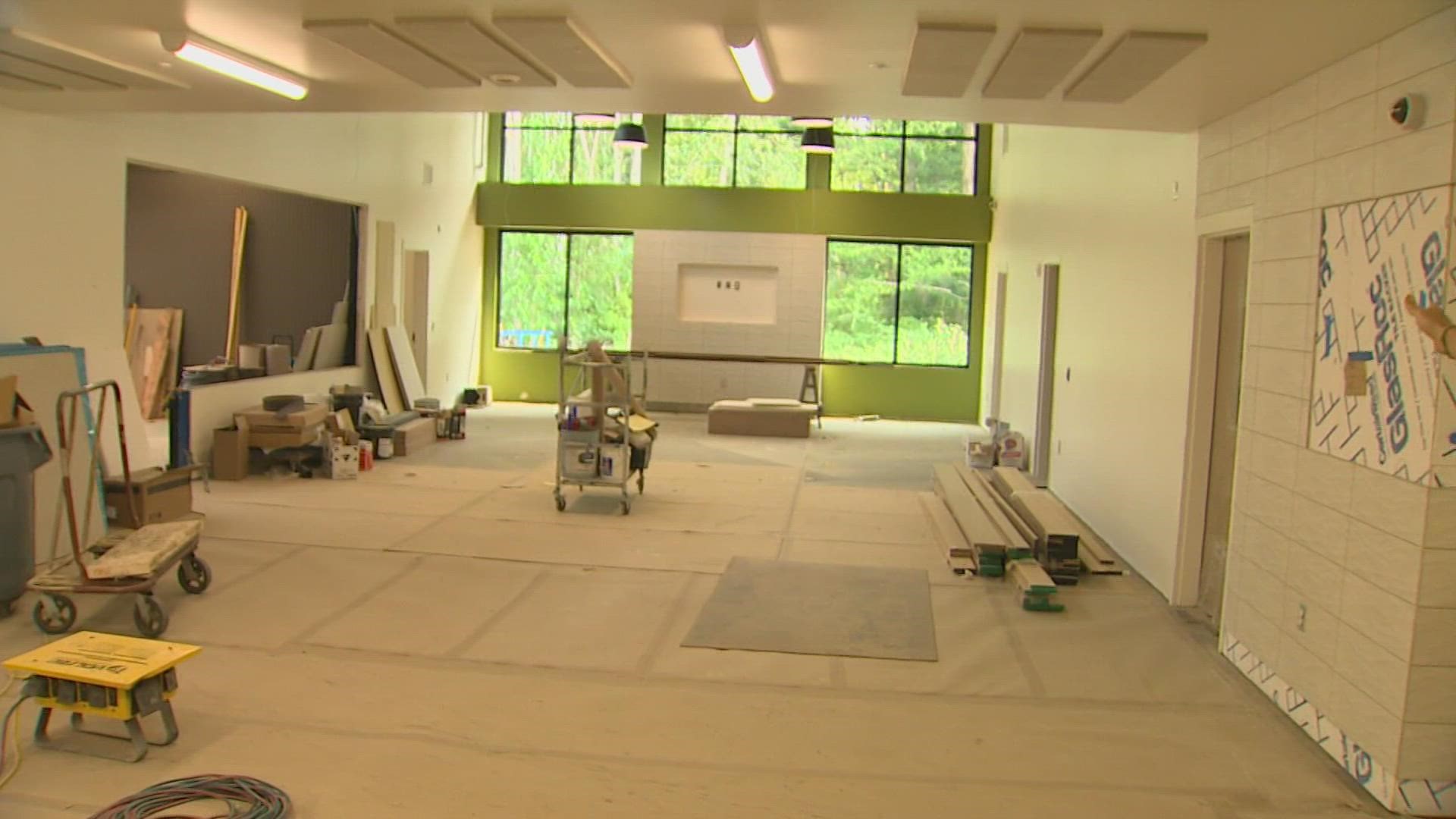SEDRO-WOOLLEY, Wash. — COVID-19-related shortages in the global supply chain have affected everything from bicycles to refrigerators, and now a new mental health treatment center in western Washington is months behind schedule because of the disruptions.
The new center, located in Sedro-Woolley, cost $7 million to build and was supposed to be open in a few weeks. But COVID-19-related delays pushed the opening back by four months.
Some construction materials are currently in such short supply, there is no front door to the building. Instead, a makeshift collection of plywood and two-by-fours gets nailed up when workers go home every night.
The worksite that should be buzzing with last-minute preparations sits mostly silent and empty.
"We were hoping to have tenants identified by now, but..." said Skagit County Facilities Director Ken Hansen, his voice trailing off. But, coronavirus occurred, creating a global backlog of materials.
In Sedro-Wooley, window frames sit empty because of a glass shortage. Special hardware for shower stalls designed to keep people from hurting themselves is nowhere to be found.
Builders are still waiting on computer chips for fire alarms. Siding from China is hung up at customs.
"We're told 6 to 8 weeks. Eight weeks comes and we're told another 6 to 8 weeks," Hansen said. "It seems like the vendors are just sort of guessing."
After China shut down manufacturing due to COVID-19, there was a surge in global demand for materials. Now that the country is operating once again, container ships have flooded west coast ports. They sit stacked up from Los Angeles to Seattle to Vancouver.
"It all adds up," Hansen said.
The treatment center delay comes as calls for help to crisis lines in the north Puget Sound region have doubled since 2020 to 4,000 a month. That number has recently risen to 1,400 calls per week.
Joe Valentine runs the North Sound Behavioral Health Administrative Services Organization, which funds treatment facilities like the one in Sedro-Woolley. He said the need for mental health services is growing greater every day.
"It's very critical," Valentine said. "These facilities play an important role for those who are in serious crisis and at risk of doing serious harm to themselves or others."
The delays and shortages are not confined to the treatment center.
"It's happening everywhere," Hansen said. "We have projects where they have the same delays in terms of getting the material, carpeting, flooring. It just seems to be every project we've been trying to complete this summer has delays."
If there are no further delays at the treatment center, patients are expected to arrive sometime in January.
In the meantime, an agreement has been worked out where patients will continue to be housed at a nearby facility until the new doors in Sedro-Woolley are installed, and open.

